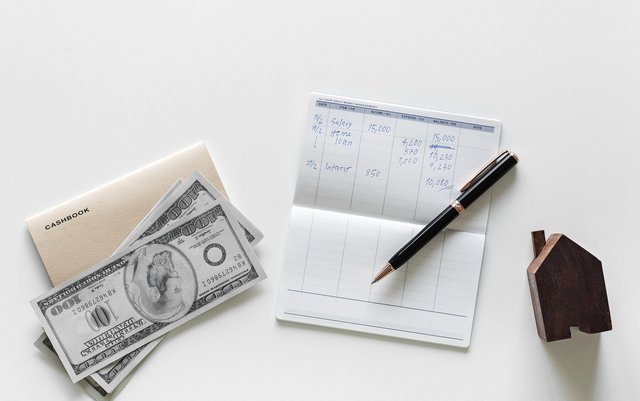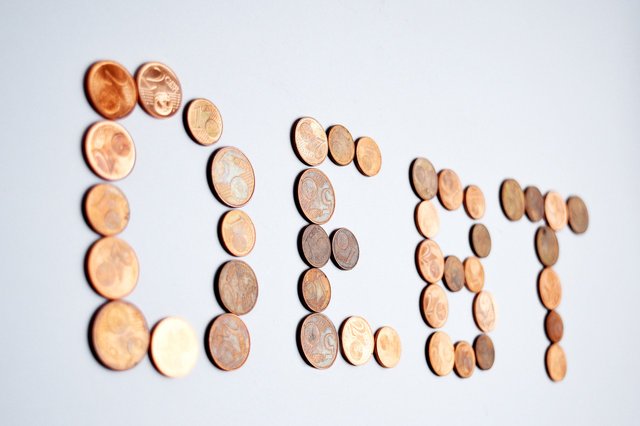Turning Back To Saving

Living paycheck-to-paycheck is a reality for millions of people today. This is the same story for people from a variety of different economic backgrounds. For example, you'll find that even some folks who are earning $100k per year still admit that they too are living paycheck-to-paycheck.
Many Americans today wouldn't be ready to deal with an emergency if one occurred.
If that emergency only cost around $400, there would be millions of people who wouldn't have the means to meet that need and they would have to turn to family or friends to help them.
The debt isn't a problem that's specific to the United States, as there are millions of people worldwide who have become accustomed to living above their means and operating under the buy now, pay later mentality.
Within the U.S. specifically, it's estimated that the average household is carrying around $137k or more in debt. The average credit card balance is around $6k and for those who are 34 and under they've been found to have an average of $67k+ in debt. Individuals between the ages of 35-64, they've got an average debt that's over $100k.

A growing number of people might be getting tired of living above their means though, as a recent Bankrate.com survey found that two-thirds of Americans are looking to limit their spending and turn back to saving for the future.
The survey found that roughly 66 percent of Americans are looking to purposefully limit their spending and about 36 percent have said it's because they want to save more; accounting for 24 percent of all survey respondents.
Other reasons that were reported for influencing the cutbacks were concerns over having too much debt, worries about the economy or job security, and because the general income for the individual hadn't changed.
The survey found that for those who were living with an annual income of $50k or less that they were more likely to admit that they were concerned about spending less so that they could save more.
As for who was most concerned about cutting back due to worries over the economy, the survey found that it was mostly those individuals who had an annual income of $30k or less, who fell into this category.

For those who are looking to aggressively limit their spending though, there are still a few things that they might splurge on.
When buying those items, they feel that the higher price is justified.
Items that they would likely change however, going for a cheaper option, include wine, take-out, and hand soap. The same study found that many respondents, about 60 percent, believed health insurance, college tuition, and concert tickets were nonsensically overpriced.
Pics:
Pixabay

@doitvoluntarily is a behavior of many people in the world, spend more than what they see and live paying the minimum card, at some point that pump has to explode, the savings layer was lost a long time ago, at least here in Argentina
Thank you very much dear friend for sharing this information
I wish you a great day
Its to late we cannot save our way out of this mess lol
World Debt Clocks
http://www.usdebtclock.org/world-debt-clock.html
Do the math and scare yourself ....
And as my last post points out working is no longer an option
https://steemit.com/technology/@thelifeofbrian/latest-on-the-tec-evolution-meshnet-news-the-latest-on-3d-printers-and-self-driving-trucks
Hey, @doitvoluntarily.
Wouldn't that be something if more people were to actually spend less and save more. I doubt that it happens, but the way our economy is based so heavily on consumer spending, any significant savings would probably end up doing something to the economy, anyway.
Not against it at all, though, since credit card lenders, or by extension, banks, could potentially end up with less income, but also less debt to carry.
Twenty-four percent wanting to save more is one thing—those 24 percent actually doing it is another. I don't know. I don't have a whole lot of faith that the US in particular, let alone the rest of the world, is going to spend less and save more. Those who do will have to take other measures beyond that to protect what money they do have, and keeping their money in banks will probably not end up being the best solution.
we should always save because we do not know when we need it and so we are prepared if a serious emergency arises, but in my country the economy does not let us save we live sometimes we have to borrow to cover some extra expenses so we do not you can live is a single concern this is not quality of life
Personally I try to save hard for a couple of years so that it gives me some breathing space to then go and look at investing or take up some kind of new challenge/opportunity. I think the problem is so many young people don't realise how important it is to build up their savings when they are still living at home when their expenses are low. Those that don't work until they finish university are at a big disadvantage in my opinion as they will be shackled by their student debt and have no form of relief.
I think the Great Recession in the U.S. had a long lasting effect on people’s attitudes towards debt. Everyone knows someone who lost their job or their house. Unfortunately a lot of debt had already been accumulated by then and it will take a while to dig out. Fortunately jobs for people with skills are plentiful and with the lowest unemployment rate since the 60s, hopefully wages will start to rise. As an individual, I made decisions about taking on debt and am confident I can pay it back in time. What I really worry about are governments who borrow with no intention of ever paying it back.
These are accurate statistics.
Many people live paycheck to paycheck, and that should be a wake up call.
Starting a family or personal budget can be very illuminating. I would recommend that as the best cure to start better financial habits.